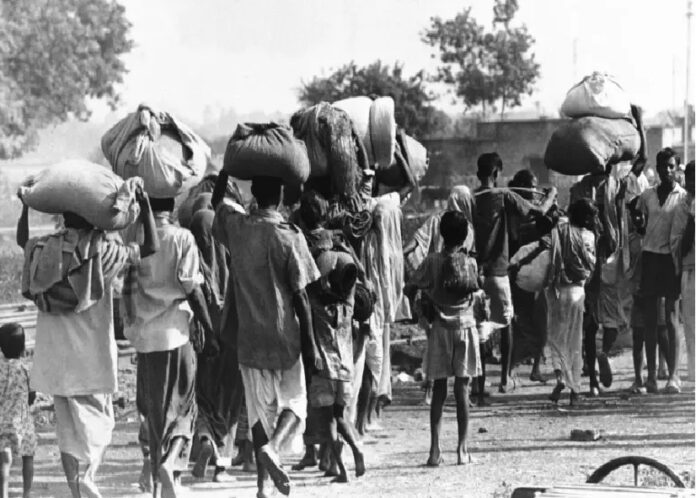India commemorated the victims of the violence that precipitated the division of the nation in 1947 by observing Partition Horrors Remembrance Day. Prime Minister Narendra Modi declared the day in 2021 to honor the millions of people who suffered because they were uprooted and lost loved ones during the division. The day was marked across India with a number of activities. A candlelight vigil was conducted at the India Gate war memorial in New Delhi. A unique exhibition featuring the experiences of survivors of the partition was held in Punjab. A blood donation camp was also held in Kolkata to commemorate the day.
Modi claimed in a speech on Sunday that the partition was a “dark chapter” in Indian history and that the nation should never forget the “horrors” that were inflicted on its citizens. He asked Indians to “strengthen the spirit of oneness” and “remove the poison of social divisions” in order to stop another tragedy like this from occurring.
Remembrance Day for the Partition Horrors serves as a reminder of history’s evil side. But today is also a time to honor the fortitude and bravery of those who endured the violence. It is a day to ponder the value of peace and harmony and to recommit to creating a brighter future for everyone.
Survivors Relate the Horrors of the Partition
Partition horrors survivors told their tales of suffering and loss on Partition Horrors Remembrance Day. They discussed how the partition forced them to leave their homes, how they saw loved ones slain, and how difficult it was for them to start over.
The horrors that were imposed on millions of people during the partition are brought to mind by the accounts of the survivors. They serve as a reminder of the value of harmony and serenity. While working to build a better future for all, we must never forget the past.
Government Commitments to Avoid Repetition of Partition Horrors
The Indian government has vowed to stop a repetition of the atrocities of the 1947 partition. On Partition Horrors Remembrance Day, the government issued a statement expressing its commitment to “building a strong and united India where everyone feels safe and secure.”
The administration declared that it would take all necessary measures to stop intergroup conflict and advance societal harmony. Additionally, it promised to try to bring justice to those who had been harmed as a result of the partition.
Although we appreciate the government’s commitment, we must keep in mind that mere words are insufficient. To avoid a repeat of the atrocities of the partition, the government must take decisive action. This entails tackling the underlying factors that contribute to intergroup conflict, such as poverty, inequality, and a lack of knowledge.
The government must also make an effort to promote tolerance and understanding in society. This entails encouraging interreligious discussion and educating people about various cultures. It also entails contesting the myths of hatred and separation that are frequently used as justifications for violence.
The atrocities of the partition were a terrible period in Indian history. Our future need not be defined by them, though. We can create a strong, united India where everyone feels safe and secure if we work together.


